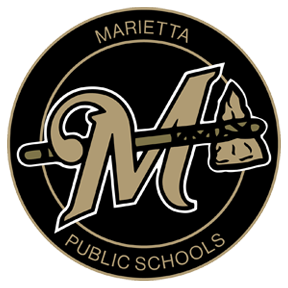When classes begin in August, students in Marietta’s primary and elementary classrooms will be transitioning to a new reading program, Houghton Mifflin Harcourt Into Reading.
The program was designed to use assessment data that gives teachers the information they need to differentiate reading instruction and monitor student progress toward literacy goals. It has long been recognized that literacy is the foundation of success in education and beyond. For that reason, it is vitally important that students develop into fluent readers and effective writers beginning in elementary school.
The new program combines whole-class instruction, small group rotations, independent practice, and assessments to build confident readers. With HMH Into Reading, teachers reported their first year of implementation a success and overall, over 90 percent of teachers were satisfied with the program. Even more importantly, Star Reading Assessment scores increased significantly when measured from the beginning to the middle of the school year.
According to Primary Principal Ann Rutledge, the HMH program was chosen because the curriculum is based on research in the essential elements of literacy and is aligned closely with the Science of Reading Research.
“This program includes scaffolds for multilingual learners, a variety of text types that also cover science and social studies topics, engaging lessons designed to build knowledge and vocabulary across grade levels as well as extensive teacher resources to help with planning for all learners,” Rutledge explained. “It also includes assessment pieces designed to give teachers the data they need to differentiate reading instruction and make sure all students are meeting their reading goals.”
The new reading program will be the adopted curriculum for all students from kindergarten through fifth grades.
“We feel that having a consistent curriculum to continually build upon will help our students as they move from one grade level to the next,” Rutledge added.
Teachers in the primary and elementary schools were actively involved in the process of choosing a new curriculum.
“The majority of our teachers felt this program checked the most boxes,” concluded Rutledge. “They are excited about having new curriculum and materials and hopeful that it will be a valuable tool to help their students succeed.”
